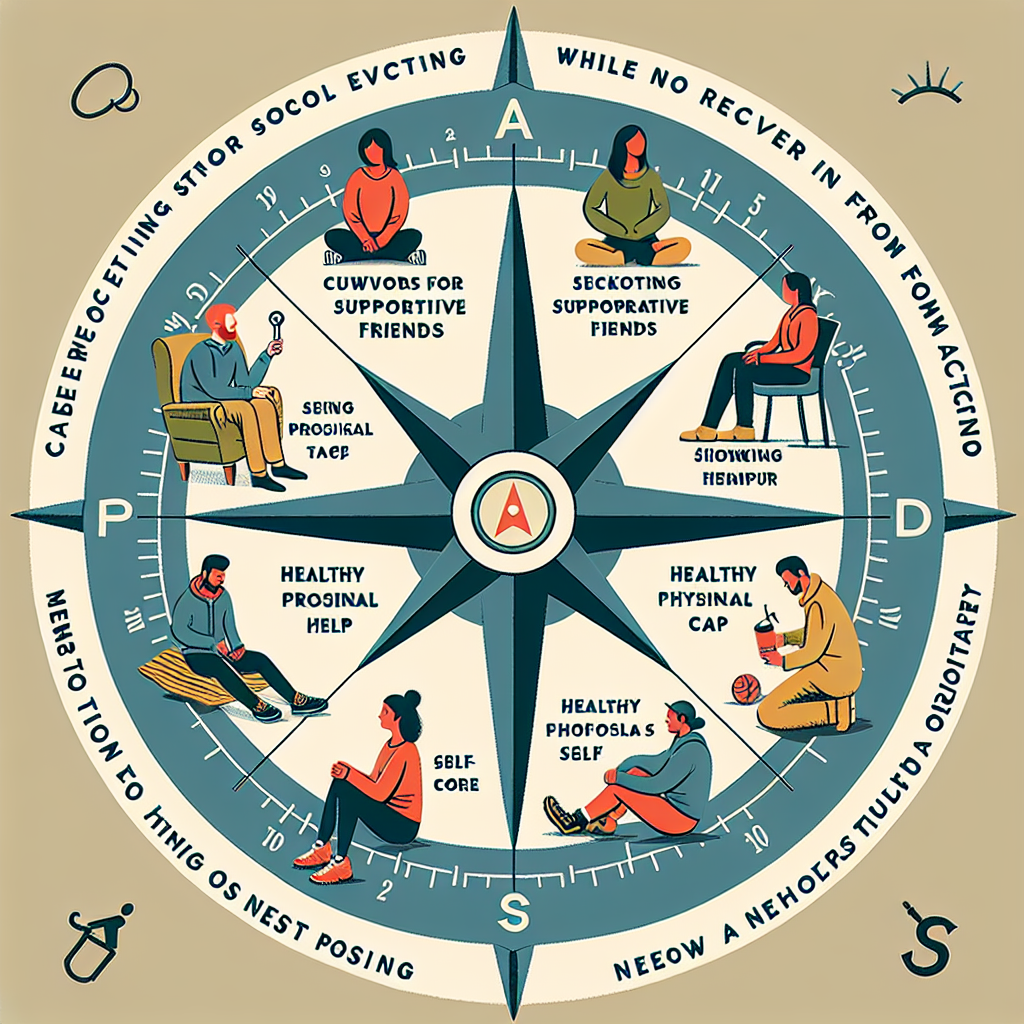-
Table of Contents
“Breaking Free: Your Guide to Overcoming Cocaine Addiction”
Introduction
Overcoming cocaine addiction is a challenging but achievable goal that requires a comprehensive approach and unwavering commitment. This introduction delves into the multifaceted strategies and practical tips essential for breaking free from the grip of cocaine dependency. By understanding the psychological, physical, and social dimensions of addiction, individuals can better navigate the path to recovery. Key elements include seeking professional help, building a strong support network, adopting healthy lifestyle changes, and employing effective coping mechanisms. With the right tools and determination, overcoming cocaine addiction is not just a possibility but a tangible reality.
Understanding the Root Causes of Cocaine Addiction
Understanding the root causes of cocaine addiction is a crucial step in overcoming this challenging and often devastating condition. Cocaine addiction, like many other substance use disorders, is a complex interplay of various factors, including genetic predisposition, environmental influences, and psychological conditions. By delving into these root causes, individuals and their support networks can better comprehend the nature of the addiction and develop more effective strategies for recovery.
One of the primary factors contributing to cocaine addiction is genetic predisposition. Research has shown that individuals with a family history of addiction are more likely to develop substance use disorders themselves. This genetic link suggests that certain individuals may be more vulnerable to the effects of cocaine, making it easier for them to become addicted. However, it is essential to remember that genetics alone do not determine one’s fate. Environmental factors and personal choices also play significant roles in the development of addiction.
Environmental influences are another critical component in understanding cocaine addiction. Growing up in an environment where drug use is prevalent can normalize the behavior and increase the likelihood of experimentation. Additionally, exposure to high-stress situations, trauma, or abuse can lead individuals to seek out substances like cocaine as a coping mechanism. The social environment, including peer pressure and the availability of drugs, also significantly impacts the likelihood of developing an addiction. Recognizing these environmental factors can help individuals identify triggers and develop healthier coping strategies.
Psychological conditions often coexist with substance use disorders, creating a complex web of interrelated issues. Conditions such as depression, anxiety, and post-traumatic stress disorder (PTSD) can make individuals more susceptible to addiction as they may use cocaine to self-medicate and temporarily alleviate their symptoms. Understanding the psychological underpinnings of addiction is vital for developing comprehensive treatment plans that address both the addiction and the underlying mental health issues.
Transitioning from understanding the root causes to taking actionable steps towards recovery involves a multifaceted approach. One effective strategy is seeking professional help through therapy and counseling. Cognitive-behavioral therapy (CBT) has proven particularly effective in treating cocaine addiction by helping individuals recognize and change negative thought patterns and behaviors. Additionally, support groups such as Narcotics Anonymous provide a sense of community and shared experience, which can be incredibly empowering for those in recovery.
Another crucial aspect of overcoming cocaine addiction is developing a strong support system. Family and friends play a vital role in providing emotional support and encouragement throughout the recovery process. Open communication and understanding from loved ones can make a significant difference in an individual’s journey towards sobriety. It is also essential for the support network to educate themselves about addiction to offer informed and compassionate assistance.
Incorporating healthy lifestyle changes can further aid in the recovery process. Regular exercise, a balanced diet, and sufficient sleep contribute to overall well-being and can help reduce cravings and improve mood. Mindfulness practices such as meditation and yoga can also be beneficial in managing stress and promoting mental clarity.
Ultimately, overcoming cocaine addiction is a challenging but achievable goal. By understanding the root causes and implementing a comprehensive approach that includes professional help, a strong support system, and healthy lifestyle changes, individuals can reclaim their lives and move towards a brighter, drug-free future. The journey may be arduous, but with determination, support, and the right strategies, recovery is within reach.
Effective Detox Methods for Cocaine Addiction Recovery
Overcoming cocaine addiction is a challenging journey, but with the right strategies and support, recovery is entirely possible. One of the most critical steps in this process is detoxification, which involves clearing the drug from the body and managing withdrawal symptoms. Effective detox methods can significantly enhance the chances of a successful recovery, providing a solid foundation for long-term sobriety.
To begin with, it is essential to understand that detoxification is not a one-size-fits-all process. Each individual’s experience with cocaine addiction is unique, and therefore, the detox methods must be tailored to meet specific needs. Medical supervision is highly recommended during detox, as it ensures that the process is safe and that any complications are promptly addressed. Medical professionals can provide medications to alleviate withdrawal symptoms, such as anxiety, depression, and fatigue, which are common during cocaine detox.
In addition to medical supervision, a supportive environment plays a crucial role in effective detoxification. Surrounding oneself with understanding and encouraging individuals can make a significant difference. This support can come from family, friends, or support groups specifically designed for those recovering from addiction. These groups offer a sense of community and shared experience, which can be incredibly comforting during the challenging detox phase.
Moreover, incorporating healthy lifestyle changes can greatly aid the detox process. Regular physical activity, for instance, helps to reduce stress and improve mood, which can be particularly beneficial when dealing with withdrawal symptoms. Exercise stimulates the production of endorphins, the body’s natural mood elevators, which can help counteract the emotional lows that often accompany detox. Additionally, maintaining a balanced diet rich in vitamins and minerals supports overall health and can help the body recover more quickly from the effects of cocaine use.
Another effective strategy is engaging in therapeutic activities. Cognitive-behavioral therapy (CBT) has proven to be highly effective in treating cocaine addiction. CBT helps individuals identify and change negative thought patterns and behaviors associated with drug use. By developing healthier coping mechanisms, individuals are better equipped to handle cravings and avoid relapse. Other therapeutic approaches, such as mindfulness meditation and yoga, can also be beneficial. These practices promote relaxation and self-awareness, helping individuals stay grounded and focused on their recovery goals.
Furthermore, it is important to address any underlying mental health issues that may have contributed to the addiction. Many individuals turn to cocaine as a way to cope with conditions such as depression, anxiety, or trauma. Treating these underlying issues through therapy or medication can reduce the likelihood of relapse and support long-term recovery. Integrated treatment plans that address both addiction and mental health are often the most effective.
Lastly, setting realistic goals and celebrating small victories can provide motivation and a sense of accomplishment. Recovery is a gradual process, and it is important to recognize and appreciate progress, no matter how small. This positive reinforcement can boost confidence and encourage continued effort towards sobriety.
In conclusion, overcoming cocaine addiction through effective detox methods requires a multifaceted approach. Medical supervision, a supportive environment, healthy lifestyle changes, therapeutic activities, addressing underlying mental health issues, and setting realistic goals all contribute to a successful detox and recovery journey. While the path to sobriety may be challenging, with determination, support, and the right strategies, it is entirely achievable.
Building a Support Network for Overcoming Cocaine Addiction
Overcoming cocaine addiction is a challenging journey that requires a multifaceted approach, and one of the most crucial elements in this process is building a robust support network. A strong support system can provide the emotional, psychological, and sometimes even physical assistance necessary to navigate the complexities of addiction recovery. To begin with, it is essential to recognize that addiction is not a battle that should be fought alone. Reaching out for help is a sign of strength, not weakness, and it is the first step towards reclaiming control over one’s life.
Family and friends often form the cornerstone of a support network. Their unconditional love and understanding can be a powerful motivator. However, it is important to communicate openly with them about your struggles and needs. This transparency can foster a deeper connection and ensure that they are equipped to offer the right kind of support. Additionally, involving loved ones in your recovery process can help them understand the nature of addiction, reducing any stigma or misconceptions they might have.
Beyond personal relationships, professional support is indispensable. Therapists and counselors who specialize in addiction can provide tailored strategies and coping mechanisms. Cognitive-behavioral therapy (CBT), for instance, has been shown to be particularly effective in treating cocaine addiction. These professionals can help identify triggers, develop healthier coping strategies, and set realistic goals. Moreover, they offer a safe space to explore underlying issues that may have contributed to the addiction, such as trauma or mental health disorders.
Support groups, such as Narcotics Anonymous (NA), also play a vital role in the recovery journey. These groups offer a sense of community and belonging, which can be incredibly comforting. Sharing experiences with others who are facing similar challenges can reduce feelings of isolation and provide practical advice and encouragement. The 12-step program, which is often a part of these groups, emphasizes personal accountability and spiritual growth, both of which can be transformative in the recovery process.
In addition to these traditional forms of support, online communities and forums can also be valuable resources. The anonymity of online platforms can make it easier for some individuals to open up about their struggles. These communities often provide round-the-clock support, which can be particularly helpful during moments of intense craving or emotional distress. Furthermore, they offer a wealth of information, from personal stories of recovery to scientific articles on addiction, which can be both educational and inspiring.
While building a support network, it is also important to set boundaries and prioritize self-care. Recovery is a deeply personal journey, and it is essential to surround yourself with people who are genuinely supportive and non-judgmental. This might mean distancing yourself from individuals who are negative influences or who do not understand the complexities of addiction. Self-care practices, such as regular exercise, healthy eating, and mindfulness meditation, can also enhance your overall well-being and resilience.
In conclusion, overcoming cocaine addiction is a daunting task, but with a strong support network, it becomes a more manageable and hopeful endeavor. By combining the love and understanding of family and friends, the expertise of professionals, the camaraderie of support groups, and the resources of online communities, you can create a comprehensive support system that addresses all aspects of recovery. Remember, every step forward, no matter how small, is a victory. With determination, support, and self-care, a life free from addiction is not just a possibility but a reality within reach.
Long-term Strategies for Maintaining Sobriety After Cocaine Addiction
Maintaining sobriety after overcoming cocaine addiction is a challenging yet achievable goal that requires a multifaceted approach. One of the most crucial long-term strategies is building a robust support network. Surrounding oneself with understanding and supportive individuals can make a significant difference. This network can include family, friends, support groups, and professional counselors. Engaging with others who have faced similar struggles can provide invaluable insights and encouragement, fostering a sense of community and shared purpose.
Another essential strategy is developing healthy coping mechanisms. Life is filled with stressors and triggers that can tempt one to relapse. Therefore, it is vital to find alternative ways to manage stress and emotional turmoil. Techniques such as mindfulness meditation, yoga, and regular physical exercise can help in maintaining mental and physical well-being. These activities not only reduce stress but also promote a sense of accomplishment and self-worth, which are crucial for long-term sobriety.
In addition to these coping mechanisms, setting realistic and achievable goals is fundamental. Having clear, attainable objectives can provide direction and motivation. These goals can range from personal development, such as pursuing education or career advancements, to smaller, daily tasks that build a sense of routine and stability. Achieving these goals, no matter how small, can boost confidence and reinforce the commitment to sobriety.
Furthermore, it is essential to maintain a healthy lifestyle. Proper nutrition, adequate sleep, and regular physical activity are the cornerstones of physical health, which in turn supports mental health. A balanced diet can improve mood and energy levels, while sufficient sleep is crucial for cognitive function and emotional regulation. Regular exercise releases endorphins, which are natural mood lifters, helping to combat feelings of depression and anxiety that may arise during recovery.
Another critical aspect of maintaining sobriety is ongoing therapy and counseling. Professional help can provide tools and strategies to deal with underlying issues that may have contributed to the addiction. Cognitive-behavioral therapy (CBT), for instance, can help in identifying and changing negative thought patterns and behaviors. Regular sessions with a therapist can also offer a safe space to discuss challenges and setbacks, ensuring that one does not feel alone in their journey.
Additionally, staying informed and educated about addiction and recovery can empower individuals to make informed decisions about their health. Understanding the science behind addiction, the impact of cocaine on the brain, and the process of recovery can demystify the experience and reduce feelings of shame or guilt. Knowledge is a powerful tool that can inspire confidence and resilience.
Moreover, it is important to avoid high-risk situations and environments that may trigger a relapse. This might mean making significant lifestyle changes, such as avoiding certain social circles or places associated with past drug use. While this can be difficult, it is a necessary step in creating a safe and supportive environment for recovery.
Lastly, practicing self-compassion and patience is vital. Recovery is a long and often non-linear process, with potential setbacks along the way. It is important to treat oneself with kindness and understanding, recognizing that each day of sobriety is a significant achievement. Celebrating small victories and learning from setbacks can foster a positive outlook and reinforce the commitment to a drug-free life.
In conclusion, maintaining sobriety after overcoming cocaine addiction requires a comprehensive approach that includes building a support network, developing healthy coping mechanisms, setting achievable goals, maintaining a healthy lifestyle, seeking ongoing therapy, staying informed, avoiding high-risk situations, and practicing self-compassion. By integrating these strategies into daily life, individuals can build a strong foundation for long-term recovery and a fulfilling, drug-free future.
Q&A
1. **What are some effective behavioral therapies for overcoming cocaine addiction?**
– Cognitive-behavioral therapy (CBT), contingency management, and motivational interviewing are effective behavioral therapies for overcoming cocaine addiction.
2. **How can support groups aid in the recovery process from cocaine addiction?**
– Support groups like Narcotics Anonymous provide peer support, shared experiences, and a sense of community, which can be crucial for maintaining sobriety and preventing relapse.
3. **What role does medication play in treating cocaine addiction?**
– While there are no FDA-approved medications specifically for cocaine addiction, some medications like disulfiram, modafinil, and topiramate are being researched for their potential to reduce cravings and withdrawal symptoms.
4. **Why is it important to address co-occurring mental health disorders in cocaine addiction treatment?**
– Addressing co-occurring mental health disorders is crucial because untreated mental health issues can exacerbate addiction, making recovery more difficult and increasing the risk of relapse.
Conclusion
Overcoming cocaine addiction requires a multifaceted approach that includes medical intervention, psychological support, and lifestyle changes. Key strategies include seeking professional help through rehabilitation programs, engaging in therapy such as cognitive-behavioral therapy (CBT), and participating in support groups like Narcotics Anonymous. Developing healthy coping mechanisms, building a strong support network, and making positive lifestyle changes such as regular exercise and proper nutrition are also crucial. Consistent follow-up care and a commitment to long-term recovery are essential for maintaining sobriety and preventing relapse.



